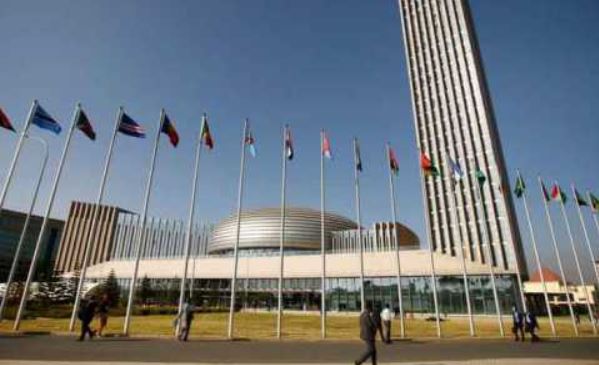 AU headquarter in Addis, Ethiopia (PHOTO: FILE)
AU headquarter in Addis, Ethiopia (PHOTO: FILE)
The economic downturn caused by Covid-19 has sent shock waves across the Sub-Saharan African region.
The Africa Continental Free Trade Area (AfCFTA) Secretariat reports that, for the first time in decades, there has been a contraction of GDP of between 2 to 5 per cent in sub-Saharan Africa. This is directly attributable to the pandemic.
The crisis has also triggered a reality check. It has exposed the challenges and inequalities of ‘business as usual’ and magnified the risks inherent in a business model, which often does not have inclusivity and sustainability as priorities. It is now more evident than ever that the way we produce, trade, organise our supply chains, and consume must change if we want to mitigate short-term impacts and better prepare ourselves for future crises while building resilience of our economies.
One just has to look at the case of commodity producers who often depend entirely on a single income stream associated with export markets. Any shift in demand has a trickle-down effect. As this shift is often a decline in demand, it has concrete impacts on the real economy. With Covid, demand in export and local markets has changed as unemployment rises, consumer incomes fall, and economic recession takes over. Can the Africa Continental Free Trade Area help to future proof African economies? I believe it can. From it will flow benefits to the private sector − and primarily the micro, small and medium-sized enterprises (MSMEs) that account for about 80 per cent of Africa’s businesses.
Given the International Trade Centre (ITC) survey finds that two-thirds of African companies are strongly affected by the pandemic, it is clear that any agreement that seeks to make it easier for these MSMEs to trade across borders has an immediate contribution to make. ITC focuses on helping the African private sector recognise and take advantage of business opportunities that will come with an operational free trade area. The World Bank predicts that implementing AfCFTA will grow Africa’s exports by $560 billion, mostly manufacturing. Simply removing tariffs on goods in the region could increase the value of intra-African trade by more than 20 per cent by 2040. The AfCFTA will stimulate industrial development and value addition as companies exploit economies of scale and access cheaper raw materials due to reduced tariffs. In turn, this will have an impact on prices and consumer choice. And given that many imports in future will be inputs for re-export, it also helps drive diversification in the region.
The architects of the AfCFTA used Africa’s existing regional economic communities (RECs) as the ‘building blocks’ of the new continental arrangement. The integrity of its constituent parts strengthens the new superstructure.
For example, the East African Community (EAC) has made steady progress in putting in place common standards, rules of origin and a common external tariff. The bloc is one of the most integrated RECs in Africa, creating a common market in January 2010 that allows free movement of goods, services, capital, labour and people, and establishment and residence rights. The EAC’s remarkable strides include harmonising monetary policy frameworks and exchange rate operations, rules and practices governing bank supervision, and integrating payment systems, financial markets and financial reporting. There is much to learn here as we plot the implementation of the AfCFTA.
Digitalisation has been central to keeping MSMEs afloat in the region. Using digital technologies has created new revenue streams and expanded efficient platforms such as mobile banking and digital data management. Nevertheless, this development remains out of reach for too many MSMEs in Africa. The level of digital penetration, especially in rural areas, remains far too low. The recovery must spur a redoubling of efforts to get more businesses online and more people connected.
E-commerce has the potential to be a significant driver − and outcome − of intra-African trade. Through the AfCFTA, countries can bring down obstacles in the digital space via synchronised regulatory approaches on data security, cybercrime, taxation, digital inclusion, and digital and e-transaction laws. This is all part of building a regional business ecosystem that is competitive and investment-ready.
The AfCFTA must be an engine for growth as much as an engine for inclusion. This is why ITC focuses on ensuring that MSMEs − especially those led by women and young people − will benefit from the AfCFTA. This is also why ITC recently introduced One Trade Africa, a new programme focused on unlocking the full potential of the AfCFTA for MSMEs.
Through partnerships, One Trade Africa will empower African MSMEs to strengthen their competitiveness. The recent launch of the online training course on ‘How to Export within the AfCFTA’ developed in partnership with Afreximbank is one example.
-The writer is Executive Director of the International Trade Centre, a joint agency of the World Trade Organisation and United Nations.




No comments :
Post a Comment